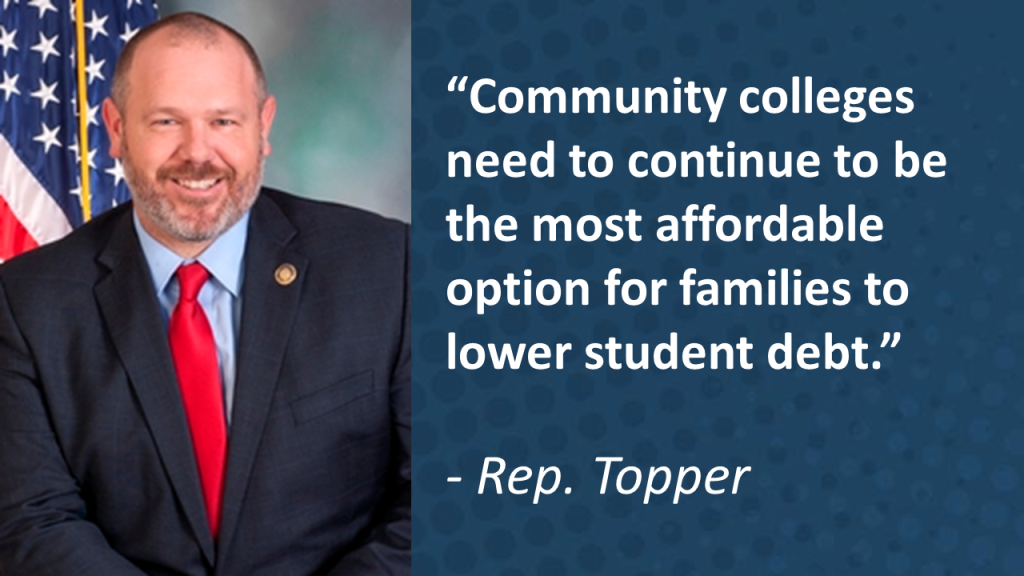
Rep. Jesse Topper was elected to represent the 78th Legislative District in the Pennsylvania House of Representatives on Jan. 28, 2014. He represents residents in Bedford and Fulton counties. For the 2023-24 session, Rep. Topper is serving as the Republican chairman of the House Education Committee.
Rep. Topper is a lifelong resident of Bedford County and has two sons. Throughout his life, he has been very active in his community, participating in 4-H and the Boy Scouts, where he earned the rank of Eagle Scout. He also coaches football at Bedford High School, where he was a three-sport athlete.
A homeschooled graduate, Rep. Topper earned his bachelor’s degree from Frostburg State University. He is also a graduate of Leadership Bedford County and the Harry Wendelstedt Umpire School.
As recently appointed Minority Chairman of the House Education Committee, what challenges do you think Pennsylvania is facing in higher education and postsecondary attainment in Pennsylvania?
The biggest challenge in higher education at this moment is the cost versus benefit ratio. For the amount of money and time that it takes to earn a postsecondary degree, graduates are not finding financially sustainable careers here in Pennsylvania. Another challenge is simply demographics in Pennsylvania: too many schools, not enough students. We have a growing elderly population and our potential pool of student-aged individuals is shrinking. Finally, I believe there is a perception among many families around Pennsylvania that students are being influenced to take an active part in the “culture wars” at the expense of a traditional education. This creates the idea that students are receiving an indoctrination as opposed to instruction.
How do you think the state should address these challenges?
We should create performance-based budget metrics for any college, university or postsecondary institution that receives any amount of state funding. We must ensure that schools are providing the workforce that Pennsylvania needs and not simply graduating students who have massive amounts of debt and a degree in Roman Pottery. We should incentivize institutions to provide access to non-tradition students who are looking for a different career; in other words, be able to obtain degrees with fewer credits so that more students who are currently working have the ability to afford and complete a degree.
Community colleges are the largest provider of postsecondary education and workforce training in the state. What role do you see community colleges playing in Pennsylvania?
One of the ways for community colleges to continue to help increase postsecondary attainment is to be involved in dual enrollment programs with high school students and offer degrees that are accessible to non-traditional, working students. Community colleges also need to continue to be the most affordable option for families to lower student debt. Additionally, the colleges should update programming so that the courses and degrees offered fit the current workforce need in Pennsylvania.
Pennsylvania is facing crisis-level shortages in critical occupations such as healthcare, teaching and public safety. How do you think community colleges can help address these shortages?
By designing courses that create a realistic and affordable pathway to those particular careers, such as expanding nursing and emergency services courses and offerings. Another idea is to contract with a local district and create teaching incubators (perhaps through a preschool or daycare program) for dual-enrolled high school students to determine if a student might have an interest in the teaching field.
The views and opinions expressed by the legislator are solely that of the legislator and may not reflect the views, opinions, policies or position of the Pennsylvania Commission for Community Colleges or its member institutions.